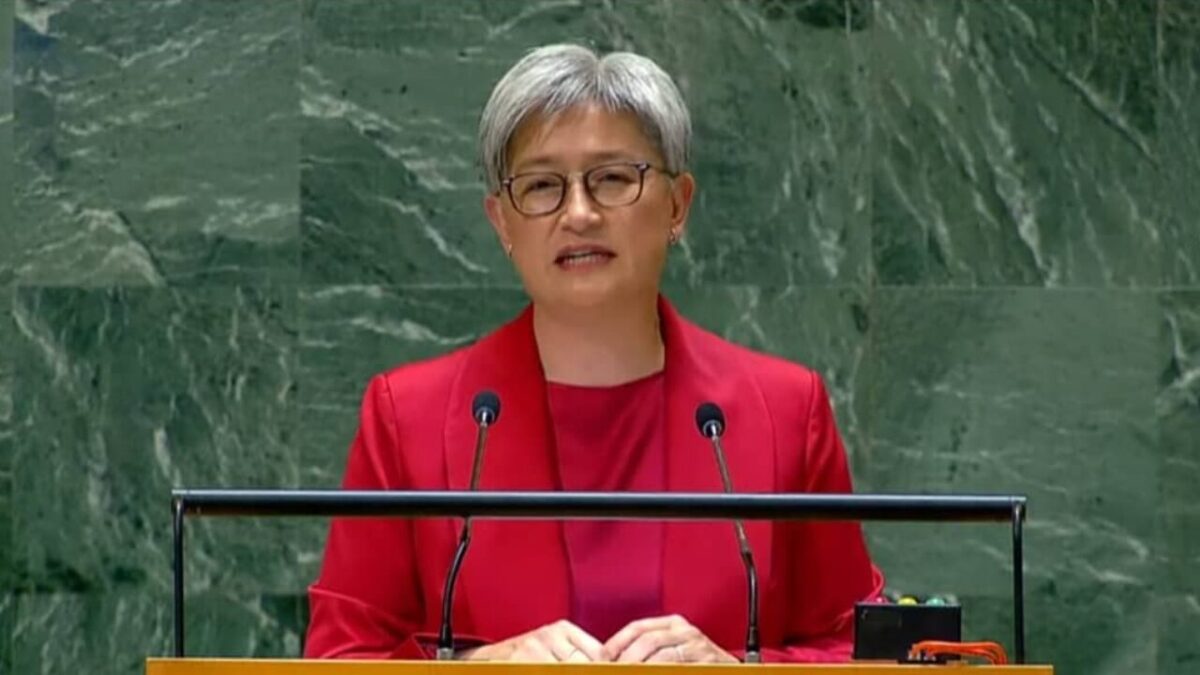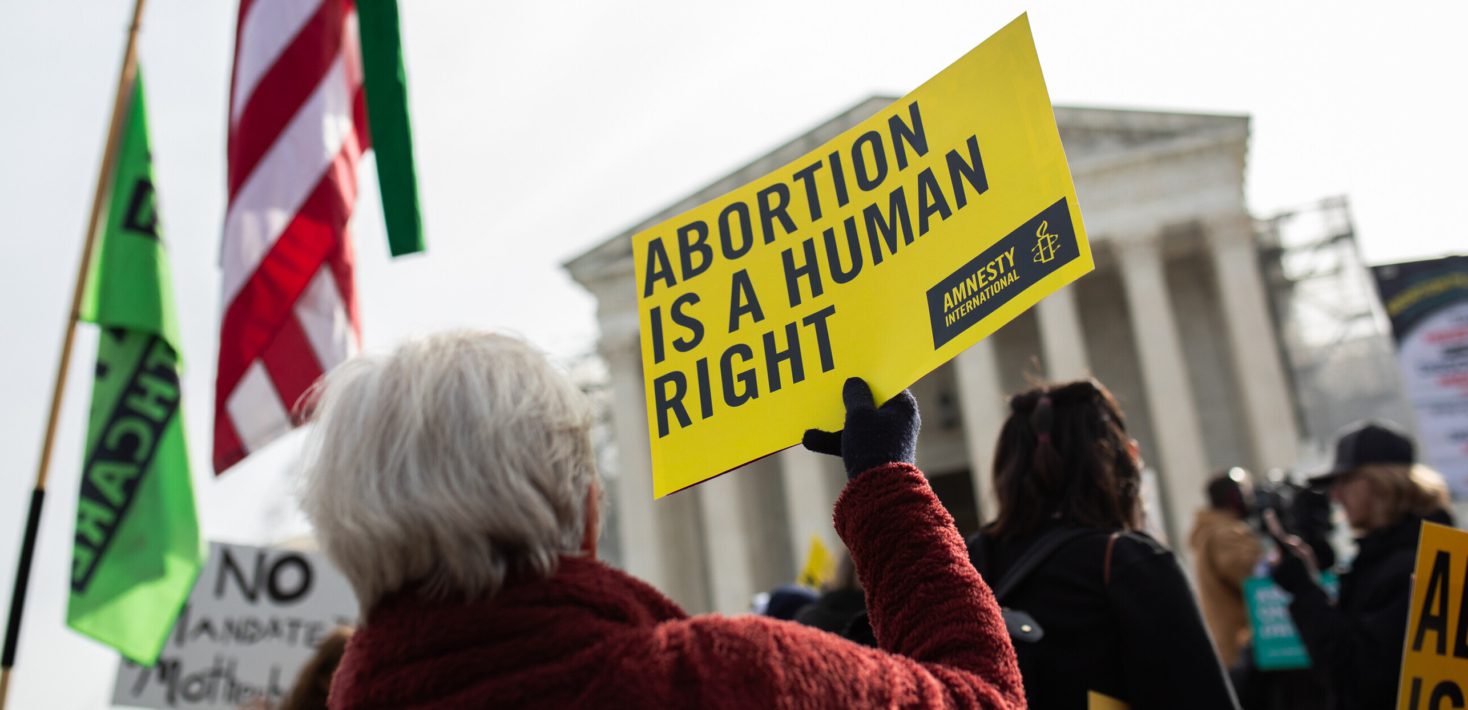Jon King, Michigan Advance
September 28, 2024

Desks in an empty elementary school classroom (Shutterstock.com)
The effort to get school vouchers approved nationwide has a long and varied history, but a book released this month posits that it is essentially a Christian Nationalist attempt at undermining public education as we know it.
That’s the conclusion of “The Privateers: How Billionaires Created a Culture War and Sold School Vouchers,” by Josh Cowen, a professor of education policy at Michigan State University.
Cowen, whose career as an education researcher in the early 2000s began with the expectation that vouchers, which allow public tax dollars for education to be spent for private school tuition, would ultimately benefit students. However, the reality that Cowen documents in the book turned out to be almost the exact opposite.
Starting in the immediate aftermath of the U.S. Supreme Court’s 1954 Brown v. Board of Education decision which ordered an end to segregated public education, and ending with the rise of the conservative Moms for Liberty – a vocal opponent of LGBTQ+ rights. Cowen describes the arc of the voucher movement as never being far removed from bigotry and intolerance, whether it be against Blacks or the LGBTQ+ community.
More importantly, however, Cowen describes in detail the academic framework, whether through universities or conservative-funded think tanks, that provides intellectual cover for the movement.
Chief among them was Nobel Prize-winning economist Milton Friedman, considered by many to have “launched the modern school choice movement,” with his 1955 essay, “The Role of Government in Education.”
ADVERTISEMENT
Friedman, who extolled the virtues of a free market system with minimal government intervention, especially in social areas such as education, wrote that while government financing of education was justified, “the administration of schools is neither required by the financing of education, nor justifiable in its own right in a predominantly free enterprise society.”
Cowen writes that in the aftermath of the Brown decision, Friedman “spoke at Southern conferences paid for by conservative donors, where his lecture notes affirmed his published work by arguing that the ‘appropriate solution’ to tensions rising from integration mandates was a ‘privately operated school system with parent choice of schools.’”
From that setting, Cowen details the decades-long battle about the role of public education, a battle that is no less fierce now than it was in 1954.
Michigan Advance had an opportunity to speak with Cowen at length about the book and its conclusions and is presenting that discussion in two parts. What follows is a conversation that has been edited for length and clarity. Advance questions are in bold, and Cowen’s responses are in regular type.
——————————
Why is understanding who Milton Friedman was so essential to understanding the modern day voucher movement?
There’s this intellectual political history debate about whether Friedman himself was a segregationist, and I sort of alluded to it in the book. It’s not really all that important. What is important is that segregation very quickly latched on to the Friedman idea. And the editors (of Friedman’s essay) understood it to be from the beginning a potential race-neutral way to avoid Brown.
He would go on to win a Nobel Prize 20 years later, worked for (President Ronald) Reagan, advised (Dictator Augusto) Pinochet in the Chilean regime. I mean, this guy was everywhere. He’s still something of a hero among the libertarians. But he’s someone whose ideas did kind of give intellectual heft to conservative public policy.
There were some Southern states in particular that jumped on this idea. Some successfully proposed small voucher systems in the ‘50s, and some didn’t quite have the votes. But you fast forward to when the first real modern voucher system gets off the ground (Milwaukee in 1990), and in a way, none of the sort of Friedman stuff was nearly as relevant at that time as it really is today, again just because of how much (voucher advocates) believe parents really should have the right to separate their kids out from what they think is going on in public schools.
In the ‘50s, it was race. And now it’s sort of race. I mean, the CRT business and the DEI business and gender ideology is in Trump 47 (the Trump campaign’s official policy proposals) and in Project 2025. So, the underlying act of vouchers is separating kids out from the public school because parents don’t like what’s going on in public school.
Starting with Milwaukee in 1990, those original voucher projects were set up so that they were going to be highly analyzed, that there would be strong data, and the expectation was that it would show student improvement, and yet, ultimately, they did not.
Exactly. The original 1990 evaluation that (Wisconsin) sort of obligated itself to when it passed the program, it just didn’t show the overwhelmingly positive results people expected, which is I think why in some sense, the conservative voucher advocates got involved in this so heavily and aggressively. What it was about was whether or not this long-time conservative pipe dream actually works or not. And then the fight sort of sustained itself for 10 years and we’re kind of back in it again.
There were some sort of gently positive results. I kind of concede that there were a handful of positive studies from that era, although at this point, they’re now almost two decades old. But what else was going on in the ‘90s and in the early 2000s was the era of more public school accountability, transparency, standards-based reform in both from the Clinton years and the George W. Bush years. No Child Left Behind was signed by George W. Bush in 2002.
They really believed in these three- to five-year long, open independent evaluations. They just have never really shown what these guys wanted. The argument of the book is not only did vouchers kind of fail to deliver in their own right, but they’ve actually had some unprecedented declines in student achievement.
That’s where you start to see these things kind of return back to. I mean, the reason I opened the book with the ‘50s stuff is this is where you really have to go back to the ‘50s to get that the language that’s used again in today’s debate, because it was not part of the ‘90s, and it was not part of the early 2000s. People like Ken Starr would sort of trump parents’ rights out there from time to time, but they still believed these things would move the needle on academics and test scores. It really wasn’t until recently where they stopped making that argument. For the most part, it’s much more about woke ideology and CRT and where people go to the bathroom and all that business.
In the book you say that as the data really turns negative, it almost cannot be dismissed any longer. It can’t be explained away. That’s where the shift in this approach comes in. Trump’s secretary of education, Betsy DeVos, who is featured prominently in your book, was involved in this long before she became the secretary of education.
Most of us, I think, are fairly well aware of Betsy DeVos and the DeVos family influence in Michigan, but it’s really hard to overstate how influential the DeVos’ have been in national conservative Republican politics for decades. It’s not just here (in Michigan). It’s the Heritage Foundation. It’s focused on the Family Research Council. There’s a DeVos Center For Religion and Family Life at Heritage. A number of the Project 2025 authors have their roots back in some of these big DeVos groups that date back to not just Betsy, but the first generation of Richard and Helen (DeVos). So, their larger goal as a family is much more sort of recentering this vision of Christianity into American life and American public policy, and I don’t think that’s a statement any of that side would disagree with.
When Betsy DeVos became the nominee for education secretary, these old comments that she’d made (reemerged) about seeing school choices advancing God’s kingdom and lamenting the fact that public schools are kind of the community centers. She wants churches to be back in the community center. The phrase Christians would would use, and I count myself among Christians, is as a mission field. I mean, the (DeVos) family has always seen public policy as a mission field for their faith. And vouchers is one area where they’ve been very, very focused of late out of Michigan, but from time to time here as well.
(Note: A request for comment was made to Betsy Devos through the Dick and Betsy DeVos Family Foundation, but was not returned.)
But this Christian-based view of public education, it’s really Christian nationalism is it not?
Yes. That is driving this.
Is the voucher movement’s ultimate goal, as personified by people like Betsy DeVos and the Koch brothers, really just an undercover way to destroy public education?
I think that’s right. I think in the short term, and certainly in the years that I was active working as an evaluator of the space and some of the early programs I write about in the book, they were just trying to get some of the stuff off the ground. I do think there’s been much more of a scorched earth take now where they’re going much harder with this sort of Christopher Rufo era, the JD Vance era, Trump himself era. It’s much more aggressive in terms of just going right at public schools. It’s not something you saw earlier in the ‘90s and in the early 2000s when it was sort of a much more mainstream conservative policy.
But that kind of describes the entire trend right now in American politics, right? This is not the party of George W. Bush anymore. It’s not the party of Mitt Romney anymore. It’s the party of Vance and Trump, and we’re having debates about Haitian immigrants and cats in Springfield, Ohio right now. (Note: The racist, discredited lie that Haitian residents in Springfield have eaten pets has been spread by the Trump campaign despite being repeatedly debunked.) It’s just a different time. And I think the voucher movement has really just sort of hooked itself to that energy and that aggression. I mean, vouchers are two of the first three paragraphs in the education chapter of Project 2025. They need to package that with everything else that’s in that 900 pages. It’s pretty fringe and extreme stuff. And I think the quiet part out loud piece of it is, they’re much more willing to go at public schools in general now as opposed to “not representing parents’ values” or “captured by the teachers’ unions.” You’d hear this from time to time, especially the union piece 20 years ago, but it’s nothing like today. And so I think when Betsy DeVos left office, and I quote this this column of hers in the book, but in that last few months of her in office, she wrote a piece for USA Today where she basically said “What we want to do next as we leave, and that’s long term, we want a Supreme Court case that’s going to throw out all the remaining Blaine Amendments and get mandatory vouchers in every state.”
I think those of us who understand school finances, those of us who understand how public school pay budgets work, understand that would imply a substantial deconstruction of public schools. But they don’t say it that way. All they say is religious families should get funding for religious education.
You have to leave it to experts on budgets and experts on public education to say, “Wait a minute. States can’t afford to stand up two sectors of education.” So if we’re going to have mandatory vouchers in every state as a fundamental religious freedom exercise, then you are really talking about a complete redesign of what schooling in America is.
Isn’t the recent legislation in Ohio, as related in a ProPublica story, that gives taxpayer money directly to private religious schools for new buildings, the realization of that column that Betsy DeVos was writing? I mean, it’s just a direct transfer of dollars.
Yes. They (Ohio) had $16 million in grants, so they kind of just steered it over during the budget process, and it wasn’t until after the fact, it figured out what it was for. I mean, you see that kind of stuff all the time in our budget process, but not for private school construction.
For those of us who’ve been working in this space for a while, the butts in seats problem for private providers has always been an issue for them. It’s actually the reason why the voucher academic results are so dreadful when these things came to scale at a statewide level, because in the early days when all of us who are working on these research teams evaluating them for states and cities, you’d get six or seven private schools of a decent quality to participate. It’s a very normal part of the social science, including an education to get participant schools. They’ll say, okay. We’ll admit some students. We’ll study it. We’ll be partners with you with this work. But just necessarily, the schools that agree to do that kind of thing are just not necessarily representative of what a typical private school might be when you scale this thing out. You’re talking about hundreds of schools and thousands of children using these vouchers, that’s where you start to get these subprime schools, but they’re financially distressed. They’re not very good. They’re often run out of church basements or double wides on church grounds in certain areas of the community. It’s just a very different kind of environment than I think the stereotype of a private school is. And so what’s going on is the other side on this understands that at some point, there’s a capacity problem. If the goal here is really to divert lots and lots of money to Christian schools, you can put as much money in a general fund budget as you want for vouchers. But if you’re kid doesn’t have anywhere to spend it, they’ve understood this to be a design problem for a while. And so the answer is, let’s try to fund private schools directly. That’s where they run into, even now, some thorny constitutional issues. That’s why the ProPublica story is kind of a big deal. They just haven’t tried this before, and now they are.
Michigan Advance is part of States Newsroom, a nonprofit news network supported by grants and a coalition of donors as a 501c(3) public charity. Michigan Advance maintains editorial independence. Contact Editor Susan J. Demas for questions: info@michiganadvance.com. Follow Michigan Advance on Facebook and X.










